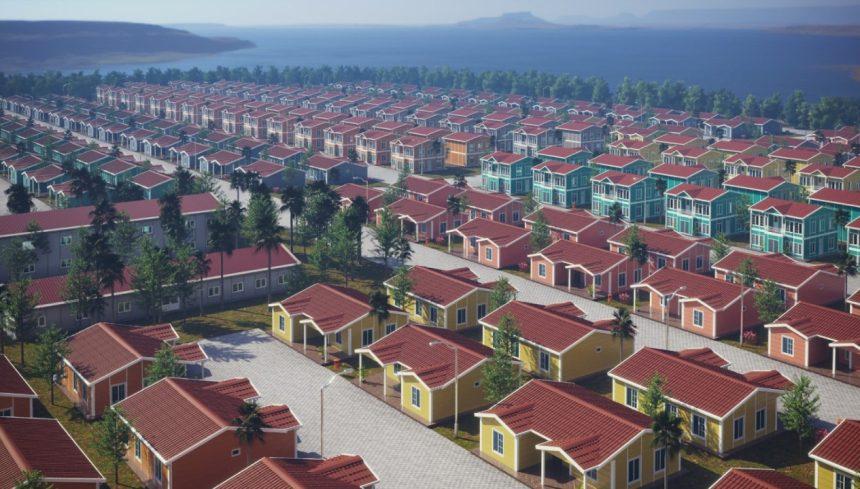Ghana’s housing market is at a critical crossroads as the nation grapples with rapid urbanization and a growing population, creating a significant gap between housing supply and affordability.
This article delves into the current state of Ghana’s housing market, highlights key challenges, and suggests actionable strategies for bolstering the sector to ensure long-term sustainability.
Ghana’s housing market is plagued by a severe shortage of affordable housing units, particularly in urban centers like Accra and Kumasi. The urban population has surged dramatically over the past two decades, escalating the demand for housing. However, the supply has failed to keep up, leading to worsening issues of affordability and accessibility. High construction costs, limited financing options, and regulatory constraints further complicate efforts to address the housing deficit.

The influx of people into cities has put immense pressure on existing housing infrastructure. As urban areas expand, efficient planning and development are becoming increasingly urgent. Rising costs of building materials and labor have significantly impacted the affordability of new housing projects.
READ ALSO: UK Housing Market Shows Signs of Recovery Amid Potential Interest Rate Cuts
The increased cost of essential materials, such as cement and steel, challenges developers in creating cost-effective housing solutions. Access to financing remains a significant barrier for both developers and potential homeowners. High-interest rates and short-term loan structures from commercial banks make it difficult to finance large-scale housing projects or purchase homes. The housing market is often hindered by regulatory and policy challenges. Ineffective enforcement of existing regulations and bureaucratic inefficiencies can delay projects and escalate costs.
To address these challenges, enhancing public-private partnerships can drive innovation and efficiency in housing development. Collaborations between the government and the private sector can facilitate large-scale projects by leveraging private investment and expertise while aligning with public policy goals. The government should also incentivize the construction of affordable housing through tax breaks, subsidies, and streamlined permitting processes. Reducing the financial burden on developers can help build more affordable housing units to meet growing demand.
READ ALSO: Ghana Marks 67 Years of Independence from British Colonial Rule
Increasing access to long-term mortgage financing is crucial for improving homeownership rates. The government can support mortgage schemes that offer favorable terms for first-time buyers and low-income households. Comprehensive urban planning and investment in infrastructure are essential for managing urban growth and improving housing accessibility. Developing infrastructure such as roads, sanitation, and public transportation can enhance the viability of new housing projects and support sustainable urban expansion. Integrating sustainable building practices into housing development can reduce environmental impact and lower long-term costs. Promoting the use of energy-efficient materials and technologies contributes to more resilient and eco-friendly housing solutions.
READ ALSO: Why I Lived Under Lagos Bridge – 75-Year-Old Ghanaian
Effective rent control mechanisms and tenant protection laws can prevent exploitation and ensure fair rental practices. By enforcing regulations and supporting tenants, the government can address issues of affordability and housing insecurity.
Strengthening Ghana’s housing market is crucial for the country’s sustainable development. By addressing challenges related to urbanization, construction costs, financing, and regulation, and implementing targeted strategies, Ghana can build a more robust and equitable housing sector. This will not only support economic growth but also improve the quality of life for its citizens. Through collaborative efforts and strategic investments, Ghana can pave the way for a more sustainable and inclusive future in housing.



